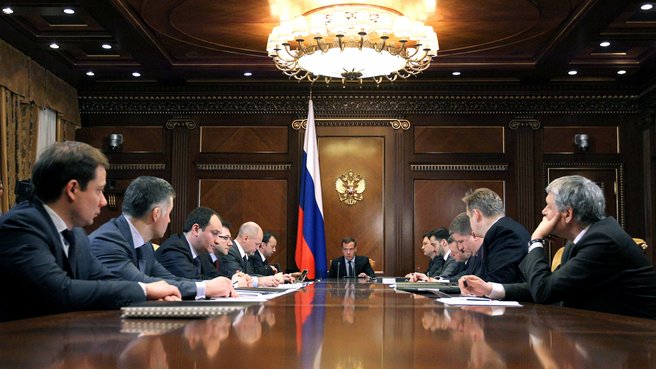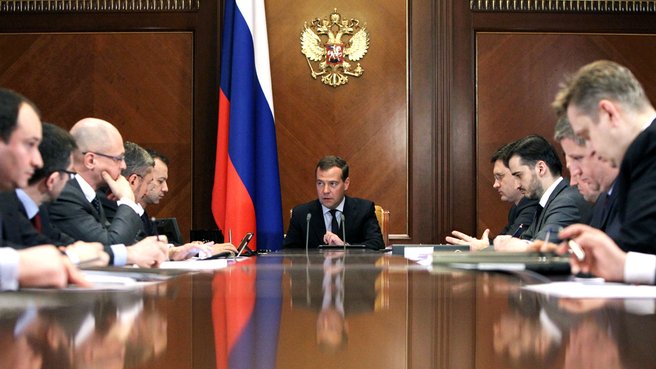Dmitry Medvedev’s opening remarks:
Good afternoon,
We agreed to meet long ago to talk about the electric power industry. It is undergoing reforms, and participants in this meeting have a direct hand in them. There has been some success. It would be wrong to say that everything is bad, because they have averted the shortage of whole generating capacities and have started construction of new effective units and modern stations. About one trillion roubles of private investment have been poured into the construction of generating capacities within four years, which is not a bad result at all. Comparable funds have been transferred by grid companies with state capital under investment programmes. The wholesale electricity market has started working; self-regulating institutes representing the interests of both electricity suppliers and consumers have been established and are gradually gaining authority. A legal foundation for this work has been created by the Government’s resolutions, including those adopted last year.
Everyone present here understands the tasks. It is necessary to upgrade the model of the market and attract long-term investment into the industry. Energy consumption in the country is growing. This is an objective process. Last year electricity generation slightly exceeded the 2011 level – by one percent, but this still represents some growth anyway. The forecast to 2030 (we discussed it relatively recently at a meeting in February) suggests the continuation of this trend.
There are many problems. One of them is wear and tear of fixed assets. According to expert estimates, the service life of about 70% of electric networks has expired. Some 60% of generating equipment has been functioning for 30 years or more. Prices are a problem as well. Neither consumers nor electric companies understand or are able to predict them. Long-term relations are a road to the right market, but for the time being the share of long-term contracts amounts to 10% of the overall electricity trade (the relevant figure in European Union countries is close to 80%).
Experts believe that transportation services account for up to 40% of prices. In this context it is very important to make the power supply network more effective.
A proposal to establish a common managing company, Russian Networks, has been adopted. The President has supported it on the basis of the relevant government document. This company will be in charge of both mains and distribution networks. One of the key tasks of the new company will be to attract private investors into the distribution networks. The main constraint, of course, is cross subsidising – the last mile problem. I’m receiving many messages on this issue. I’ve just gotten more of them from governors. Anyway, let’s discuss this issue as well.
It is very important to reduce the costs and time of technological connection to the grid. Late last June the Government endorsed a roadmap to simplify these procedures. Under the Policy Priorities of the Government, the number of connection stages should be brought down from 10 to five by 2018. For the time being, we are looking very bad in the international ratings, which we have become fond of citing recently. You know that in one particular rating we occupy the “honourable” 184th place – the last but one. It practically cannot be worse. I don’t know what country is at the very bottom but apparently it is not a very fortunate one.
There is one more issue – payment discipline in the market. Meetings are being held on this issue. It was also raised at a meeting of the commission on the strategy of the fuel-and-energy sector, and I held a special conference on the North Caucasus in December. Everything is very complicated and progress is slow. There are many signals. So the problem is there and must be resolved. This should be done by all means. Considering we agreed to discuss only the key problems and the document, I think I have said enough.
<…>














